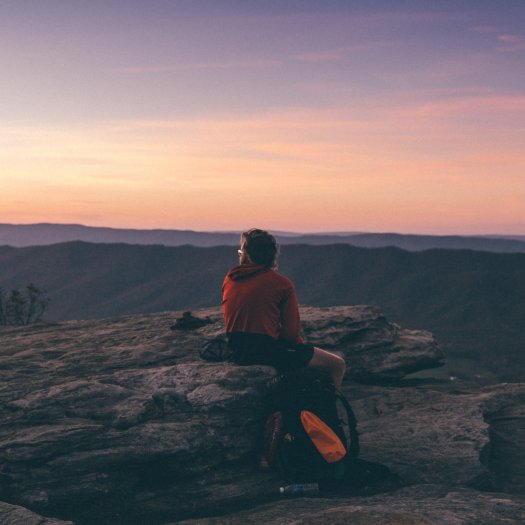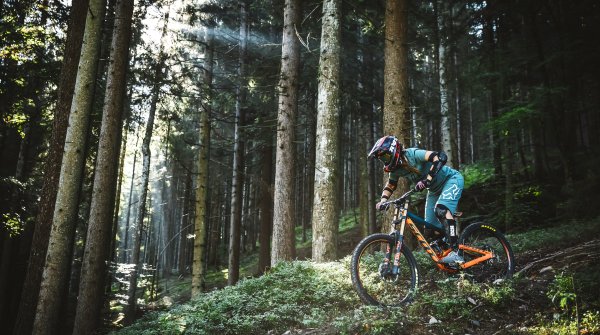First of all, bivouacking is not camping. Bivouacking means setting up a makeshift night camp in the open. For one night and usually without a tent. Unlike camping and tents, it is usually tolerated, but not everywhere. Before doing so, it is essential to inform yourself about the legal situation, because ignorance alone does not protect you from high fines.
In different countries the rules differ significantly. In some regions bivouacking is allowed in an emergency, but a planned overnight stay is not. In Germany, for example, the rules differ from state to state. It should go without saying that you should not spend the night in national parks, nature reserves and protected areas.
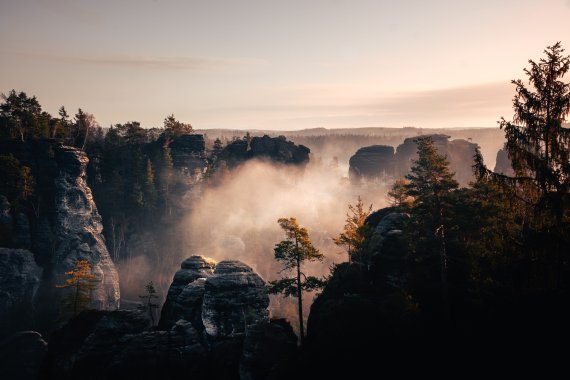
It is also different whether I bivouac right next to a village or a long descent in the mountains separates me from civilization. Therefore, bivouacking in the Alps is usually tolerated, as long as it is for your own protection, is not deliberately planned and you behave considerately.
Another way to get a legally safe place to sleep is to ask the owner of the land. Often the owner has no objection as long as you leave your campsite as you found it.
Not only should you think about the legal situation in advance and make an informed decision, but also about the choice of where to roll out your sleeping mat. So that you don't wake up meters away from the original sleeping place as a restless sleeper, it should be as flat and level as possible. At the summit, this is often not so easy in a group and may not be so comfortable in windy conditions. Sometimes it makes more sense to spend the night further down, sheltered from the wind.
Bedded down on an ant trail, it will certainly be a rather restless night. Therefore, be sure to check for insects. If ledges and caves offer possible shelter, check loose stones and look for animal droppings, because someone may already be living here.
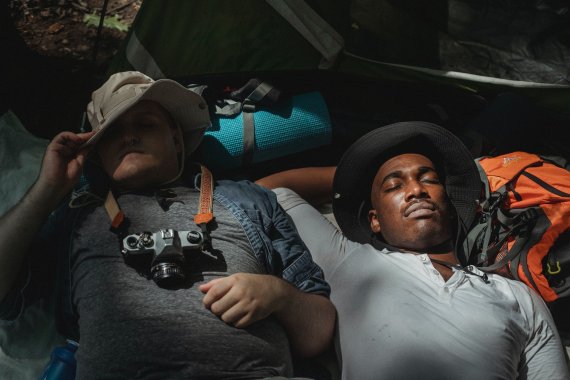
Depending on how hardy you are, you can spend the night outside at any time of the year. But it also depends on the right equipment, because with a light quilt you are badly helped in wind and weather. For inexperienced outdoor sleepers, summer is the best time to start, as the weather should be mild, windless and dry at night. So it's worth keeping an eye on the weather forecast and postponing an overnight stay in the open air if the weather is forecast to be rather unstable.
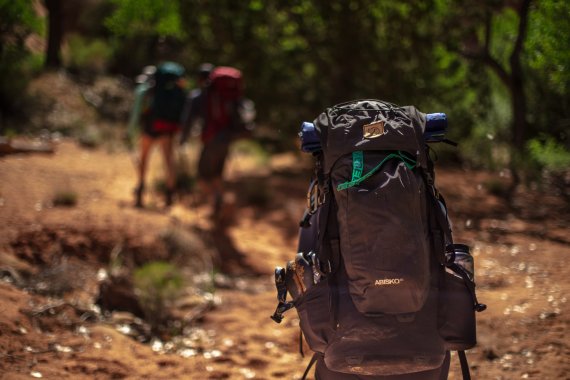
To have a good night, the right equipment is important. Compared to camping, bivouacking is more minimalistic. However, the basics usually include the big three: sleeping bag, sleeping pad and bivy sack.Here it depends on the right choice: With the sleeping bag, it is important to look at the comfort temperature that the manufacturer specifies. It is better to choose a slightly cooler one and, if it is warm, to open the zip overnight than to freeze in a sleeping bag that is too thin.
A light, self-inflating insulating mat made of tear-proof material is best suited as a base, should a small stone have hidden under the mat. At the same time, it protects you from losing too much heat through the ground.Minimalists may want to forgo the bivy sack, but the lightweight is still recommended: The bivy sack serves as a windbreak and protects against moisture, so that the sleeping bag does not lose its thermal performance.
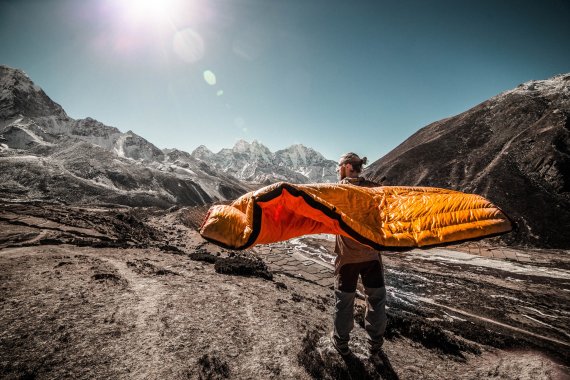
Otherwise, a headlamp or flashlight is a good idea, as is the standard equipment you pack for any hiking or mountain tour. Don't forget a camera or smartphone to capture moments like the sunset and sunrise or the sleepy face of your companion sitting in the sleeping bag trying to get the first coffee.
Overnight, it pays to stow your gear in a windproof and dry place: For example, clothes lying around can like to be wet from the morning dew, which is less bad with the water bottle than with the sweater or the down jacket, which you would like to have thrown over dry and warm when you get up at dawn. If you have a little more space in your backpack, you can also get inspired here regarding sustainable outdoor gadgets (insert link as soon as link is available).
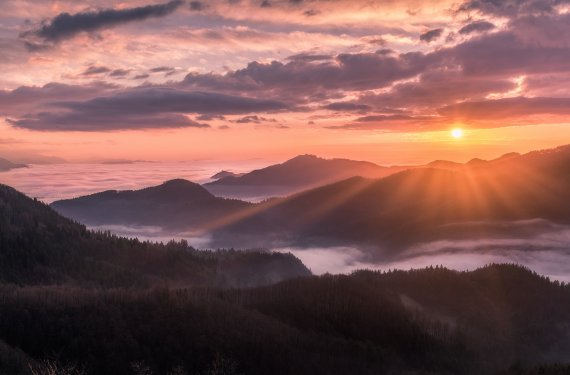
In the wilderness, you are left to your own devices for the night. And that also applies to the food. You should definitely have enough food and drink with you to fortify yourself in the evening and also in the morning. Especially if you have a long way to go the next day. A good tip is also to bring a thermos of tea or soup to warm yourself at night or in the morning.
With regard to food, everyone is also responsible for themselves, unless it has been explicitly discussed in advance in the group. If not, don't assume that your adventure buddy has taken you into account in their supply planning and that you can count on full service for dinner and breakfast.
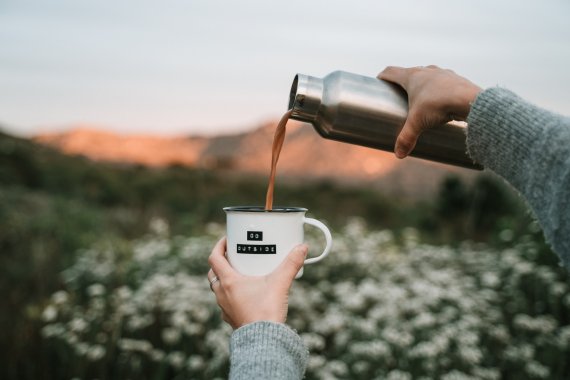
There are also a few things that must be avoided when bivouacking in nature. As appealing as campfire romance may be: making fire is usually not allowed and especially in forests and in dry summers not a good idea.
You should also behave appropriately as far as volume is concerned in order not to disturb the wildlife at night. Boombox and the party playlist can be safely left at home for other occasions.
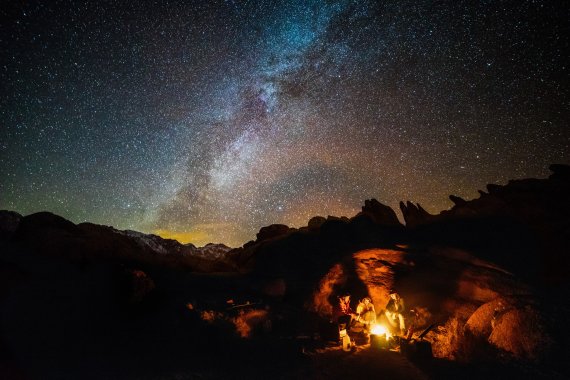
Certainly, nature is there for everyone's recreation, yet we should treat it with care. Often we are only guests where plants and animals live. The premise of any adventure in the great outdoors should therefore be to disturb and affect flora and fauna as little as possible. This also includes taking all your rubbish back with you and not leaving the campsite devastated.
 OutDoor by ISPOOutDoor in transition
OutDoor by ISPOOutDoor in transition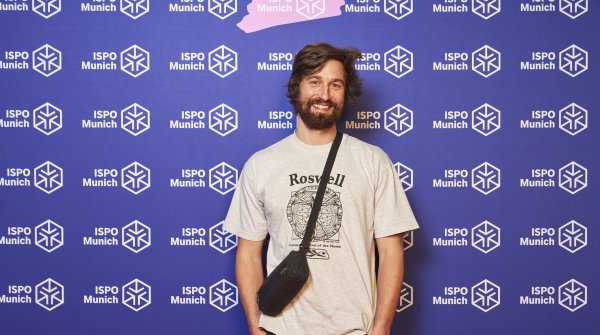
- ISPO awards
- Mountain sports
- Bike
- Design
- Retail
- Fitness
- Health
- ISPO Job Market
- ISPO Munich
- ISPO Shanghai
- Running
- Brands
- Sustainability
- Olympia
- OutDoor
- Promotion
- Sports Business
- ISPO Textrends
- Triathlon
- Water sports
- Winter sports
- eSports
- SportsTech
- OutDoor by ISPO
- Heroes
- Transformation
- Sport Fashion
- Urban Culture
- Challenges of a CEO
- Trade fairs
- Sports
- Find the Balance
- Product reviews
- Newsletter Exclusive Area
- Magazine
